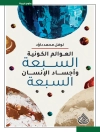This book is the first treatise on magic by Éliphas Lévi and one of his fundamental works. In this book, he criticizes magic as a collection of methods and rituals. Instead, he says magic is a universal power and attribute of a man, an eternal religion that existed before Christianity and other religions. According to his theory, proper magic as an attribute of a human is a combination of psychic force, will, and imagination. He calls the ordinary miracles attributed to unnecessary magic exaggerations. Yet, the access to the true magic is constricted only to a narrow circle of selected people, or Magi. Those who go through the initiation to Magi acquire force to alter human wills. His works became quickly popular, as their publication coincided with the interest in magic and occultism in the second half of the 19th and the beginning of the 20th century. It also greatly influenced the magic of the Hermetic Order of the Golden Dawn. Also, in this text, Éliphas Lévi, for the first time, pointed out that a pentagram or five-pointed star with one point down and two points up represents evil, while a pentagram with one end up and two points down represent the good.
Giới thiệu về tác giả
Alphonse Louis Constant (1810-1875), working under the pen name Eliphas Levi was a French researcher into the history of magic, poet, and author of over twenty esoteric books. He started his writing career at the age of 22 and was imprisoned twice for the critical nature of his books. Nevertheless, his ideas greatly influenced the development of magical beliefs and traditions in Europe and the United States.












